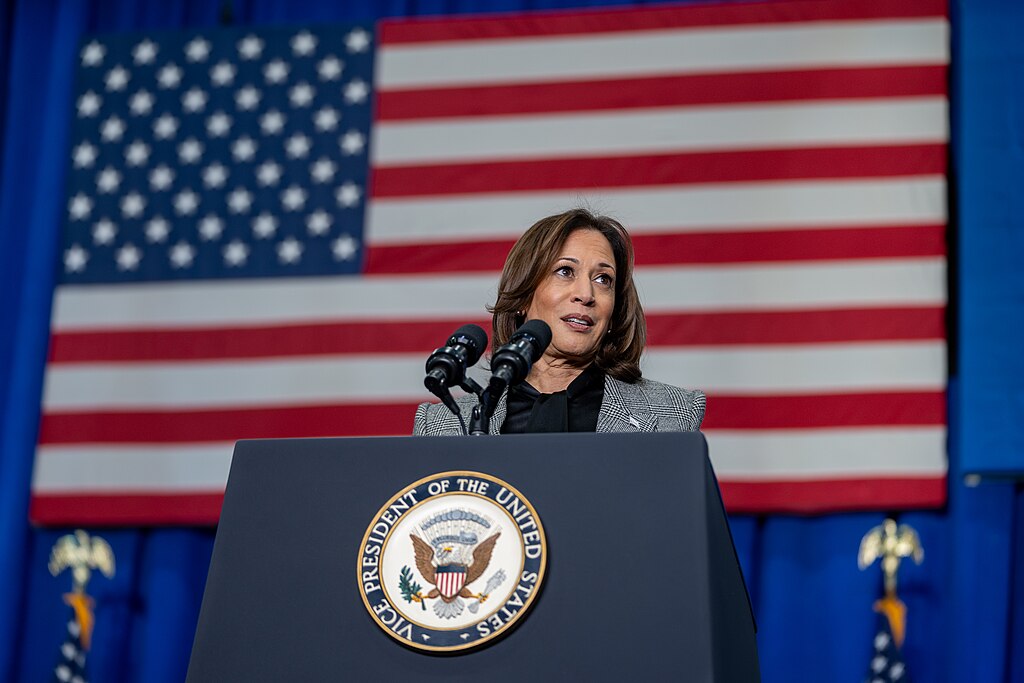Kamala Harris has a record of favoring steeper tax hikes on businesses and people than President Biden. While both President Biden and Vice President Harris aim their proposed tax hikes on businesses and high earners, key differences between their tax ideas in the past reveal where Harris may take her tax policy platform in the 2024 campaign.
What Has VP Harris Proposed in the Past?
In her 2020 campaign and as a senator from California, Harris proposed multiple changes to the tax code, including:
- Raising the top marginal income tax rate on the top 1 percent to 39.6 percent
- Implementing a 4 percent “income-based premium” on households making more than $100,000 annually to pay for her version of “Medicare for All”
- Creating a $3,000 refundable tax credit ($6,000 for married couples filing jointly) for low- and middle-income taxpayers
- Raising capital gains tax rates to ordinary income tax rates
- Raising the corporate income tax rate of 21 percent up to 35 percent
- Expanding the estate tax
- Imposing a financial transaction tax (FTT) on stock trades at 0.2 percent, bond trades at 0.1 percent, and derivative transactions at 0.002 percent
- Providing $2,000 per person per month for pandemic relief in mid-2020
- Creating a tax credit for rent payments made by renters who earn less than $100,000 and spend over 30 percent of their income on rent and utilities
How Do Her Past Proposals Compare to the Biden-Harris Administration?
Though Harris’s campaign proposals often lacked detail, they shared similarities with the policies included in the fiscal year 2025 budget proposed by the Biden-Harris administration:
- Raising the top income tax rate on the top 1 percent of earners from 37 percent to 39.6 percent
- Increasing the corporate income tax rate
- Taxing capital gains and dividends at ordinary income tax rates
- Increasing refundable tax credits for individuals
In many areas, however, Harris’ proposals differ in details and scope:
- Harris proposed returning to a 35 percent corporate tax rate, while the FY 2025 budget would take it to 28 percent.
- Harris did not clarify if ordinary tax rates on capital gains would apply to all earners or just a subset, while the FY 2025 budget would do so only for people making $1 million or more.
- Harris supported a version of Medicare for All, financed by a proposed 4 percent tax on incomes above $100,000. Biden has avoided a Medicare for All-style proposal and taxing those earning less than $400,000 during his campaign and administration.
- Harris proposed the LIFT the Middle-Class Act, a new refundable tax credit structured like the earned income tax credit that phases in with earned income, while the FY 2025 budget focuses on expanding the child tax credit and making it fully refundable on a permanent basis.
- Harris proposed a financial transaction tax on certain Wall Street trades, including stocks, bonds, and derivatives, while the FY 2025 budget includes no such proposal.
What about the $400,000 Pledge?
President Biden has consistently pledged that he would not raise taxes on households earning under $400,000. While Harris has made supportive comments about the $400,000 pledge as running mate and Vice President, her elevation to Democratic nominee is an opportunity to rethink the tax pledge.
The pledge has several tax policy weaknesses. First, it sharply reduces policymakers’ available options to reform the tax code and raise offsets. Second, it increases the complexity of the tax code by requiring policymakers to design ideas around not increasing taxes on most households. Third, key details of the pledge remain unanswered and inconsistent.
By jettisoning the tax pledge, Harris could consider broader policy options that are more consistent with sound tax policy. In addition to opening options for a more rational tax policy, stepping away from the pledge would increase honesty with the American public that policy changes will require alterations beyond the top 2 percent of income earners.
What about the Trade War?
Former President Trump instigated a trade war by imposing about $80 billion of tariffs on imports from China. While the Biden-Harris administration has retained most of the trade war tariffs, Harris has in the past demonstrated a better understanding of the downsides of tariffs.
As the new nominee, Harris would have the opportunity to lift the tariffs, reducing the economic drag they are currently imposing and boosting after-tax incomes for lower- and middle-income households enduring most of the tariff burden.






